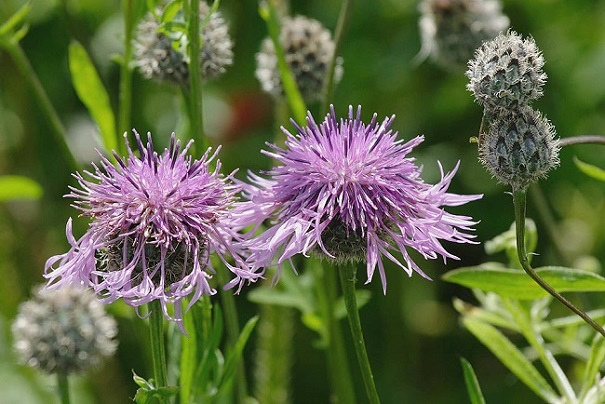Scientists Find That Phytochemicals from Centaurea Scabiosa Show Strong Anti-SARS-CoV-2 Potential
Nikhil Prasad Fact checked by:Thailand Medical News Team Nov 28, 2025 3 months, 4 days, 1 hour, 55 minutes ago
Medical-News: A Traditional Herb Reveals Powerful Antiviral Promise
New research has uncovered potent antiviral potential in Centaurea scabiosa, a wild herb long used across Europe and Asia for healing. Scientists from the Vorozhtsov Novosibirsk Institute of Organic Chemistry, Novosibirsk State University, the State Research Center of Virology and Biotechnology VECTOR, and the Research Institute of Biological Medicine at Altay State University conducted a detailed investigation into the plant’s lipophilic phytochemical components. Their aim was to determine whether these natural compounds could inhibit the SARS- CoV-2 main protease, a critical enzyme for viral replication, and this
Medical News report brings attention to how promising these findings truly are.
 New analysis finds Centaurea scabiosa rich in compounds that strongly inhibit a major SARS-CoV-2 enzyme
More Than 100 Bioactive Phytochemical Compounds Identified
New analysis finds Centaurea scabiosa rich in compounds that strongly inhibit a major SARS-CoV-2 enzyme
More Than 100 Bioactive Phytochemical Compounds Identified
Using advanced extraction methods and GC MS analysis, the team examined both leaves and inflorescences of the plant. They identified over 100 phytochemicals, far more than earlier studies had ever reported. These included a wide range of terpenoids, sterols, aliphatic aldehydes, ketones, alcohols, and hydrocarbons.
Among the standout compounds were powerful triterpenoids such as alpha amyrin, beta amyrin, and several cycloartane based structures. The plant also showed high levels of important phytosterols like beta sitosterol, stigmasterol, and campesterol. Additional discoveries included squalene, long chain aldehydes ranging from C21 to C30, secondary alcohols such as 10 nonacosanol, and a diverse set of fatty acids. Many of these molecules are already known for antiviral or anti-inflammatory effects, suggesting strong natural synergy.
Strong Blocking of the SARS-CoV-2 Main Protease
When the extracts were tested against the SARS CoV 2 3CL protease, the results were striking. Hexane and MTBE extracts showed the highest activity, with IC50 values as low as 0.15 mg per mL. This places Centaurea scabiosa among the more promising plant sources for natural protease inhibitors. The antiviral power clearly resides in the lipophilic components, as water based and ethanol heavy extracts demonstrated much weaker effects.
What the Findings Mean for Future Medicine
These results suggest that Centaurea scabiosa could contribute to the development of new antiviral compounds. The wide variety of triterpenoids, sterols, alcohols, and long chain ketones not only expands scientific understanding of the plant but also points toward possible therapeutic applications. As researchers continue exploring plant based antiviral strategies, this species stands out as a valuable natural resource with significant pharmacological potential. Further investigation may reveal even more promising bioactive derivatives that could help strengthen future antiviral drug pipelines.
The study findings were published in the peer reviewed journal: Molecules.
;https://www.mdpi.com/1420-3049/30/23/4568">https://www.mdpi.com/1420-3049/30/23/4568
For the latest COVID-19 News, keep on logging to Thailand
Medical News.
Read Also:
https://www.thailandmedical.news/articles/coronavirus
https://www.thailandmedical.news/articles/covid-19-herbs
